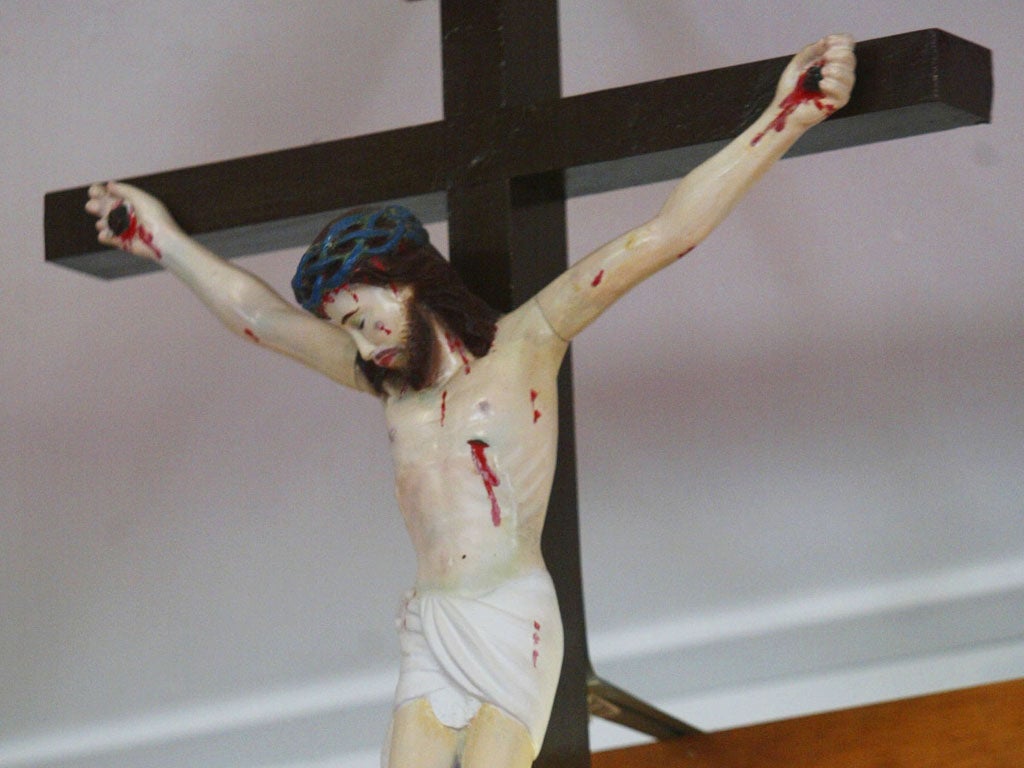British children should learn about Christianity - it's our history
Christianity is part of our history so should be taught to children - it's not indoctrination.


Your support helps us to tell the story
From reproductive rights to climate change to Big Tech, The Independent is on the ground when the story is developing. Whether it's investigating the financials of Elon Musk's pro-Trump PAC or producing our latest documentary, 'The A Word', which shines a light on the American women fighting for reproductive rights, we know how important it is to parse out the facts from the messaging.
At such a critical moment in US history, we need reporters on the ground. Your donation allows us to keep sending journalists to speak to both sides of the story.
The Independent is trusted by Americans across the entire political spectrum. And unlike many other quality news outlets, we choose not to lock Americans out of our reporting and analysis with paywalls. We believe quality journalism should be available to everyone, paid for by those who can afford it.
Your support makes all the difference.Let me set out my stall.
I am not a Christian believer. I regard most of what’s in the Bible as fiction. I do not go to church and I have no religious faith of any kind.
But I live in a country which has been culturally Christian for over 1700 years. I am ethnically a Christian, whether I like it or not. Whatever I choose to believe in, Christianity as a cultural force is very much bigger than me. It has always, for example, underpinned our laws. The Reformation changed some of the details but not the principles. And we’re still arguing about it. Witness the concern and anger, even from unlikely people, about last week’s decision not to consecrate women last week.
The literature – prose, poetry and drama - which nurtures me has been deeply influenced by the various translations of the Bible and by the Book of Common Prayer for centuries. So has the music I listen to and sometimes make. If you cut all religious works out of the classical repertoire it would be a very slender version of itself without, for example all those Bach and Mozart masses amongst many other possible examples including Messiah and, most of John Rutter’s pieces that we hear so much of at this time of year. A substantial amount of what you see in art galleries is rooted in Christian mythology too.
That’s why I believe that every child in this country should learn about Christianity, its history, its tenets and its traditions. The need and right of every British child – regardless of colour and creed – to have this understanding is far more important than any individual’s doctrinal squeamishness.
They won’t understand history without in-depth knowledge of Christianity either. Henry VIII reformed the church so that he could marry Anne Boleyn – which must be incomprehensible to anyone who doesn’t understand the complexities of the religion-led politics between Rome and the rest of the world in the 16 century and before. And how do you explain the Stuarts, the divine right of kings and the principled stubbornness of Charles I without also teaching Christianity and the different ways it has been interpreted in the past?
I have no patience with teachers who say they can’t or won’t teach any of this because they are atheist, agnostic or belong to another religion such as Buddhism or Islam. I don’t believe in the polytheism once practised by Greeks and Romans, but it never stopped me sharing the, often very dramatic, stories of Zeus, Mercury, Aphrodite, Neptune and co with children so that they would understand the classical references in literature, art and music as well as getting a clearer idea of how those ancient peoples thought and felt.
But it doesn’t happen. Or at least not enough. It was reported yesterday that an Oxford University study has found that teachers are reluctant to teach children about Christianity because they’re afraid of being thought to be evangelising.
Well, don’t all good teachers evangelise? I certainly used to evangelise about literature as an English teacher – and often, for that matter, about some of the magnificent language in the Bible (“with twain he covered his face, with twain he covered his feet and with twain he did fly”). The Book of Common Prayer (“the devices and desires of our own hearts”) or a good traditional hymn (“slow to chide and swift to bless”).
Why can’t primary and specialist secondary RE teachers simply take the line: ‘Just look at this idea/story/development/language. Isn’t it fascinating?’ You can enthuse and sell all the best bits of the subject you love without trying to promote the doctrine. Information and the encouragement of interest and free thought is not, definitely not, the same as indoctrination.
At another level, there’s a lot of truth in the Christian mythology just as there is in Greek and Roman myths and in any good fiction. That’s why these stories have stood the test of time. It doesn’t have to be literally true – that Jesus was born to a virgin in a stable for example – for there to be truth in the nativity story. It is about, for example kindness (Joseph and the inn keeper), curiosity (the shepherds), respect (the magi) and ruthless cruelty (Herod). The story says a lot about family values too. All these things I have discussed in classes with pupils, always making it clear that for me - although not for everyone - these stories are myths not reportage.
So good luck to Dr Nigel Fancourt and his colleagues on the RE programme at Oxford’s Department of Education. They have just launched a series of free, new, online materials for primary and non-specialist secondary teachers to help strengthen their weak teaching about Christianity.
Under no circumstances should we brainwash our children with religious doctrine or allow teachers to do so. But we must ensure that they are knowledgeable enough about Britain’s cultural religious traditions to make sense of history, politics, art, music and literature. We are failing them otherwise.
Join our commenting forum
Join thought-provoking conversations, follow other Independent readers and see their replies
Comments